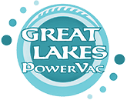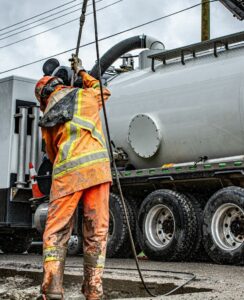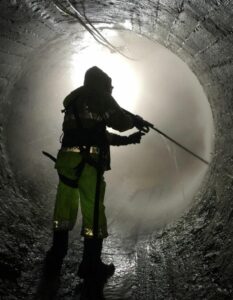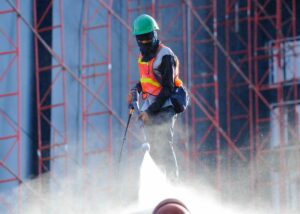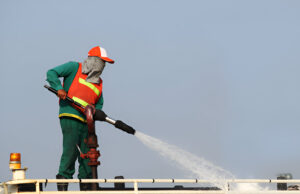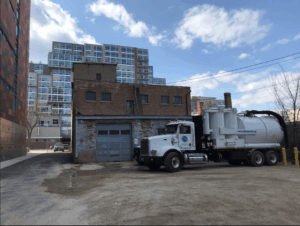Introduction
Industrial cleaning presents unique challenges due to the scale, complexity, and hazardous nature of the waste often involved. Facilities such as factories, refineries, and municipal plants require specialized cleaning methods to maintain operational efficiency and adhere to environmental regulations. This is where industrial vacuum services come into play, providing a powerful and efficient solution for cleaning and waste removal.
From tank cleaning to emergency spill cleanup, understanding when to choose industrial vacuum services can save time, enhance safety, and ensure compliance with local and federal guidelines. This guide explores the applications, benefits, and considerations for selecting the right provider for your facility.
What Are Industrial Vacuum Services?
Explanation of Equipment and Process
Industrial vacuum services utilize high-powered vacuum systems to remove liquid and solid waste, including sludge, debris, and hazardous materials. These vacuums are equipped with advanced filtration systems and large storage tanks, enabling them to handle substantial quantities of waste with precision and efficiency.
The process involves:
- Powerful Suction: Capable of extracting heavy sludge, wet debris, and dry materials from confined or hard-to-reach areas.
- Containment: Safe collection of waste in sealed tanks to prevent spillage or contamination.
- Disposal: Transporting waste to designated disposal or treatment facilities in compliance with environmental standards.
These systems are designed to operate in a wide range of industrial environments, offering solutions for even the most complex cleaning challenges.
Applications in Various Industries
Industrial vacuum services are invaluable across diverse sectors:
- Petrochemical Plants: Cleaning tanks, pipelines, and separators to prevent contamination and downtime. Petrochemical facilities often handle volatile substances, making precise and safe cleaning critical.
- Food Processing Facilities: Removing grease, sludge, and byproducts to maintain hygiene and comply with strict food safety standards. Regular cleaning ensures uninterrupted operations and prevents contamination.
- Municipalities: Cleaning storm drains, sewer systems, and waste treatment facilities. These services help manage urban waste effectively and support public health initiatives.
Whether dealing with hazardous materials or routine maintenance, industrial vacuum services provide tailored solutions to meet the specific demands of each industry, ensuring optimal results.
Common Scenarios for Industrial Vacuum Services
Tank Cleaning
Industrial tanks accumulate residues, sludge, and hazardous waste over time, necessitating periodic cleaning to maintain functionality and prevent contamination.
- Application: Removing heavy sludge, scale, and chemical residues from storage tanks, reactors, and silos. These tasks often require specialized equipment and trained professionals to ensure safety and effectiveness.
- Benefits: Enhances operational efficiency, prevents cross-contamination, and complies with safety regulations.
Tank cleaning is particularly critical in industries such as oil and gas, where the buildup of hydrocarbons can pose significant risks. Regular maintenance helps extend the lifespan of tanks and ensures uninterrupted operations.
Oil-Water Separator Cleaning
Oil-water separators play a vital role in preventing environmental contamination by separating hydrocarbons from wastewater. Regular cleaning ensures their effectiveness and compliance with environmental standards.
- Application: Removing sludge, oil, and debris to maintain separator efficiency. Neglected separators can lead to operational inefficiencies and environmental fines.
- Compliance: Ensures adherence to environmental regulations and prevents costly fines. Proper cleaning reduces the risk of spills and enhances the sustainability of facility operations.
Proper maintenance of these systems protects both the environment and the facility’s reputation, demonstrating a commitment to responsible waste management.
Emergency Spill Cleanup
Industrial spills, whether involving hazardous chemicals or non-hazardous materials, require immediate attention to minimize environmental and operational impact.
- Response: Rapid deployment of industrial vacuums to contain and remove spills. Providers often have 24/7 response teams ready to handle emergencies.
- Versatility: Effective for oil, chemicals, and other liquid or solid waste spills. Industrial vacuums can handle spills of varying sizes and complexities with precision.
Emergency spill cleanup services are a critical component of any facility’s disaster response plan. Quick action not only mitigates environmental damage but also reduces downtime and potential regulatory penalties.
Benefits of Industrial Vacuum Services
Efficiency and Time Savings
Industrial vacuum systems significantly reduce the time required for cleaning tasks compared to manual methods. High-powered suction ensures thorough removal of waste, even from confined or hard-to-access areas. This efficiency minimizes downtime and allows facilities to resume operations quickly.
Facilities that rely on manual cleaning methods often face extended downtimes and inconsistent results. By contrast, industrial vacuums streamline the cleaning process, saving valuable time and labor costs.
Environmental Compliance
Adhering to environmental regulations is a top priority for industrial facilities. Industrial vacuum services ensure proper waste containment, transportation, and disposal in compliance with EPA standards and other local regulations. This reduces the risk of penalties and promotes sustainable operations.
By partnering with providers experienced in regulatory compliance, facilities can confidently manage their waste while contributing to environmental preservation. Sustainable practices enhance the facility’s reputation and align with corporate responsibility goals.
Worker Safety
By outsourcing cleaning tasks to trained professionals equipped with advanced technology, facilities can minimize workers’ exposure to hazardous substances. This reduces the risk of accidents, health issues, and liability concerns, creating a safer work environment.
The use of industrial vacuum services also reduces the need for manual labor in dangerous conditions, ensuring that employees remain safe and productive in their primary roles. This proactive approach to safety helps prevent workplace injuries and associated costs.
Choosing the Right Provider
What to Look For in a Service
Selecting the right industrial vacuum service provider is crucial for achieving optimal results. Key factors to consider include:
- Experience: Providers with a proven track record in your industry. Experienced teams understand the unique challenges of different facilities and can provide tailored solutions.
- Equipment: Modern, well-maintained vacuum systems capable of handling your specific waste type. Advanced equipment ensures efficiency and reliability.
- Certifications: Compliance with safety and environmental standards, such as OSHA and EPA certifications. These certifications demonstrate a commitment to professionalism and regulatory adherence.
- Customer Reviews: Positive feedback from other facilities with similar needs. Reviews provide insights into the provider’s reliability and service quality.
A reputable provider ensures reliable, efficient, and compliant cleaning services that align with your facility’s operational goals.
Importance of Local Expertise
Hiring a provider familiar with regional regulations and environmental considerations offers several advantages:
- Regulatory Knowledge: Understanding of local disposal requirements and guidelines. Providers with local expertise can navigate complex regulations with ease.
- Faster Response Times: Proximity enables prompt service for routine and emergency needs. This is particularly beneficial for time-sensitive tasks like spill cleanup.
- Community Connection: Commitment to supporting local industries and environmental initiatives. Working with a local provider fosters collaboration and trust within the community.
FAQ's
Cleaning frequency depends on the type of facility and the materials handled. Generally, tanks and separators should be inspected and cleaned annually or as required by regulations. Regular maintenance ensures optimal performance and compliance.
Yes, industrial vacuum services are equipped to handle hazardous waste safely, following strict containment and disposal protocols. Providers are trained to manage risks associated with hazardous materials.
Industries such as petrochemicals, food processing, manufacturing, and municipalities frequently use industrial vacuum services to maintain efficiency and compliance. These services are adaptable to various industrial environments.
The duration depends on the scope of the project and the type of waste. Industrial vacuum systems are designed for speed, significantly reducing cleaning time compared to manual methods. Most tasks can be completed within hours or a single workday.
Yes, many providers offer rapid response services for spills, minimizing environmental impact and operational disruptions. Quick containment and cleanup prevent further complications and ensure compliance with environmental regulations.
Conclusion
Industrial vacuum services provide an essential solution for maintaining cleanliness, safety, and efficiency in large-scale facilities. From tank cleaning to emergency spill response, these services address critical needs with precision and reliability. Choosing an experienced provider ensures compliance with regulations and protects both workers and the environment.
